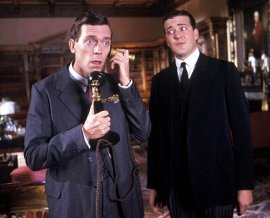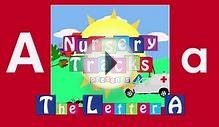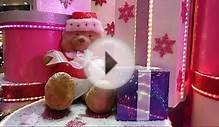
 And ‘rambunctious’, ‘verily’, ‘salutations’, ‘spiffing’, ‘betrothed’ and ‘bally’ have all followed ‘cripes’ in falling out of fashion.
And ‘rambunctious’, ‘verily’, ‘salutations’, ‘spiffing’, ‘betrothed’ and ‘bally’ have all followed ‘cripes’ in falling out of fashion.
But a quarter of British adults admit using text message abbreviations such as ‘lol’ (laughing out loud), ‘jel’ (jealous) and ‘soz’ (sorry) in verbal communication.
The survey of 2, 000 adults found that almost three-quarters believe longer words have become outdated since text messages and social networking websites gained popularity.
TOP FORGOTTEN WORDS
1. Bally: A British word from 1885 which is a euphemism for bloody
2. Laggard: An 18th Century word to describe someone who lags behind or responds slowly
3. Felicitations: From the noun of action felicitate, you would use this word to express congratulations
4. Rambunctious: Boisterous or unruly, the word is believed to have originated in 1830
5. Verily: From Middle English, simply means true or in truth
6. Salutations: A welcome greeting
7. Betwixt: Originated before 950, and means neither the one nor the other
8. Lauded: From the Latin laudāre, to praise
9. Arcane: Known or understood by very few
10. Raconteur: A person skilled in telling stories, originated in the 19th Century, from the French verb, raconter, to tell
11. Cad: An ill-bred man, originates from 19 Century, derived from the word Caddie
12. Betrothed: The person to whom one is engaged
13. Cripes: Twentieth Century slang for an expression of surprise, euphemistic for 'Christ!'
14. Malaise: A vague or unfocused feeling of mental uneasiness
15. Quash: To put down or suppress completely; quell
16. Swell: Originates before 900 from the Middle English verb swellen, meanings include the verb to inflate and an adjective which describes if something is excellent
17. Balderdash: From the 1590s it was originally a jumbled mix of liquors (milk and beer, beer and wine, etc.), before being transferred in 1670s to 'senseless jumble of words'
18. Smite: To strike, deal a blow
19. Spiffing: From the word spiff, meaning well-dressed, means superb
20. Tomfoolery: Foolish behaviour
 Half of those polled didn’t know what a ‘cad’ was and almost one in five weren’t familiar with the term ‘raconteur’, while three-quarters had never described something as ‘diabolical’.
Half of those polled didn’t know what a ‘cad’ was and almost one in five weren’t familiar with the term ‘raconteur’, while three-quarters had never described something as ‘diabolical’.
JP Davidson, author of Planet Word, which tells the story of our evolving language, said: ‘There are some great descriptive words that are being lost and these words would make our everyday language much more colourful and fun if we were to use them.’
Among words that Brits said they don't use anymore are 'bally' and 'swell', researchers found.
Just nine per cent use the word 'bogus', ten per cent have used 'fiddlesticks' and only three quarters have used 'oopsy-daisy'.
Only half have used the word 'knackered' and three quarters have never used 'diabolical'.
Three quarters don't use 'cheerio' and a fifth say they don't know what 'myriad' means.
While only 82 per cent are familiar with the word 'raconteur', 70 per cent have never used the word 'shenanigans'. One in fifteen adults has never used the word 'drat' and half didn't know what a 'cad' was.
Most people admitted they often come across words they don't know the meaning of, with teenagers and those in their twenties finding this happening more frequently than any other age group.
Fifteen per cent of people say they would have a bad impression of someone who used longer words and language that wasn't as common and was a little outdated.
J.P. Davidson said: 'Language is something that is constantly evolving.
Youngsters today might struggle to understand P.G. Wodehouse's characters Bertie Wooster (portrayed on TV by Hugh Laurie, left) and his valet Jeeves (Stephen Fry, right)
'You only have to look on Twitter to see evidence of the fact that a lot of English words that are used say in Shakespeare's plays or PG Wodehouse novels - both of them avid inventors of new words - are so little used that people don't even know what they mean now.
'This could be viewed as regrettable, as there are some great descriptive words that are being lost and these words would make our everyday language much more colourful and fun if we were to use them.
'But it's only natural that with people trying to fit as much information in 140 characters that words are getting shortened and are even becoming redundant as a result.
'The folly is to try and stem the tide of the new whether they emerge from rap, technology, teenspeak, or the multitude of jargons that we invent to make shortcuts and communication more efficient between groups.
'Whilst trousering and fardel might be lost to the tweeter generation there's no end of new invention and I am sure both of these authors would find the new uses of language quite bootylicious.'
See also:MORE TRANSLATION VIDEO












